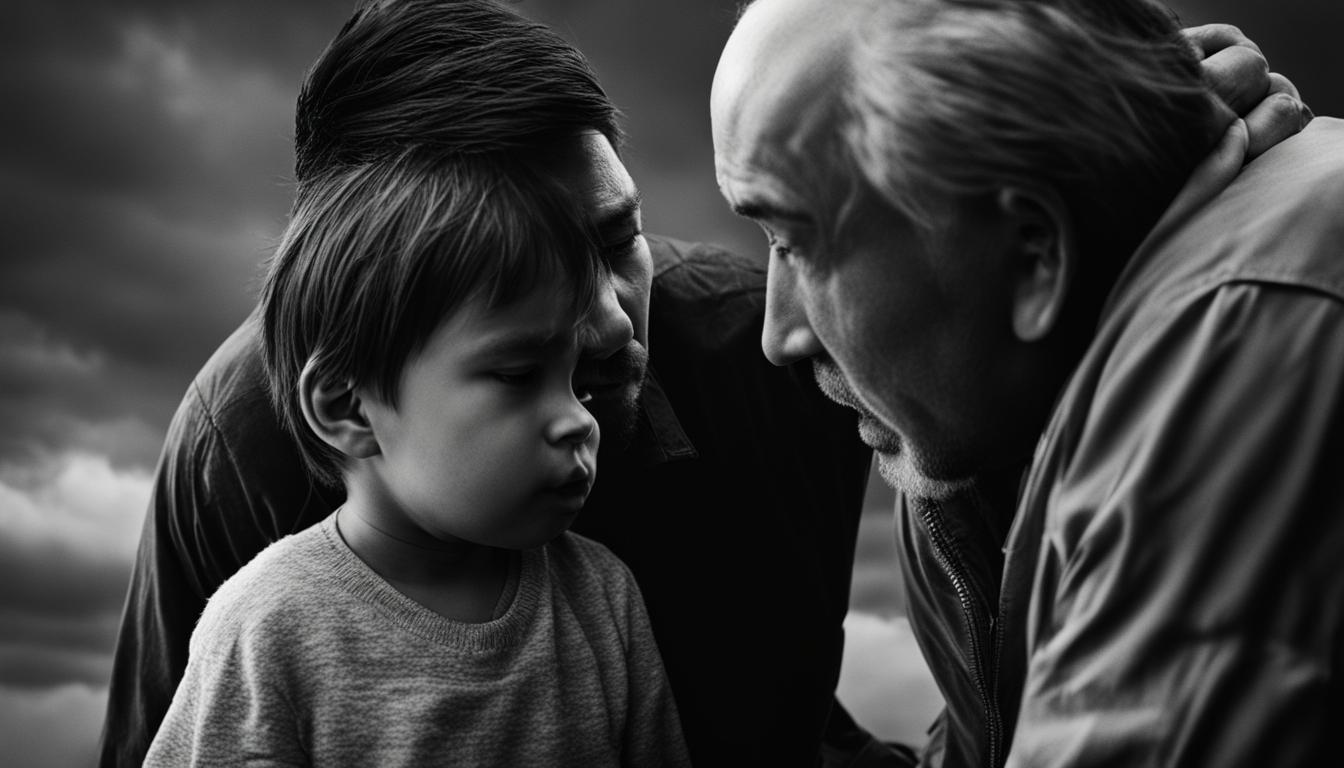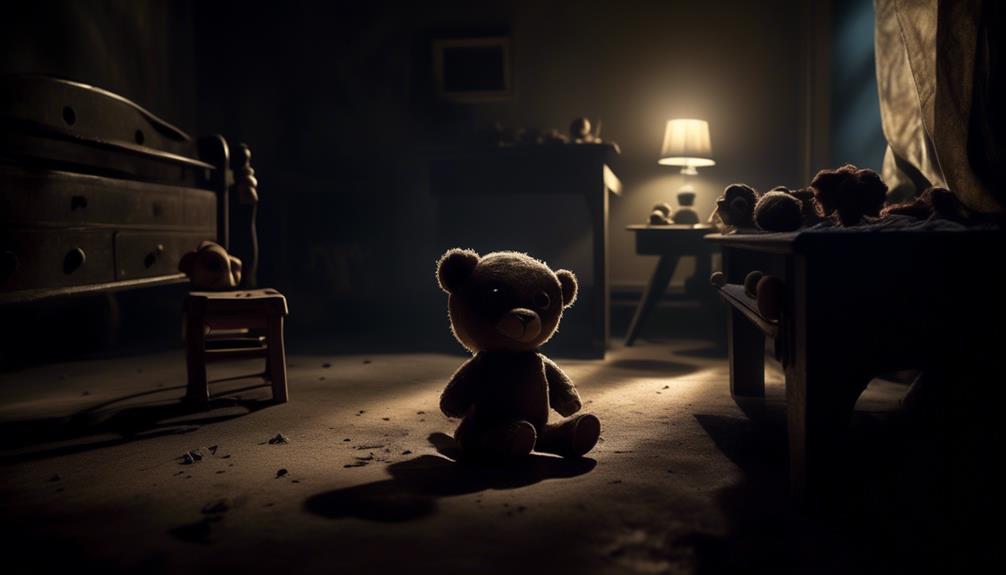As fathers of daughters who are struggling with addiction and Borderline Personality Disorder, we are on a difficult path, constantly adapting to the emotional turmoil and unpredictability that impact our lives.
It's a journey filled with unexpected challenges and heart-wrenching moments that test the very core of our being. But amidst the chaos lies a deep well of love and determination that propels us forward, seeking to understand, support, and uplift our daughters in their darkest moments.
Join us in exploring the complexities of this unique father-daughter dynamic, where resilience, compassion, and unwavering commitment guide us through uncharted waters.
Key Takeaways
- Prioritize self-care to manage stress and maintain mental well-being.
- Seek professional support to navigate complexities and enhance communication.
- Foster stability through consistent emotional support and unwavering love.
- Build a support network for understanding, guidance, and shared experiences.
Challenges of Parenting a Daughter With BPD
Navigating the complexities of parenting a daughter with Borderline Personality Disorder (BPD) involves confronting the challenges associated with recognizing and responding to her intense emotions and impulsive behaviors. Daughters with BPD may struggle with unstable relationships, self-harm tendencies, and difficulties in regulating their emotions. As parents, we face the daunting task of setting boundaries, providing stable guidance, and offering consistent support to help our daughter navigate the turbulent waters of BPD.
One of the key difficulties we encounter is the need to establish clear boundaries while still showing empathy and understanding towards our daughter's struggles. It's crucial to find a balance between being supportive and enforcing limits to ensure her well-being. Additionally, fostering a sense of stability through predictable routines and unwavering love can provide a solid foundation for her to lean on during challenging times.
In coping with our daughter's impulsive behaviors and intense emotions, seeking professional support becomes paramount. Educating ourselves about BPD, addiction, and effective coping strategies equips us with the tools needed to support our daughter effectively. By proactively addressing these challenges, we can offer our daughter the unwavering support she needs to navigate the complexities of BPD and addiction.
Impact of Addiction on Father-Daughter Relationship

The toll of addiction on the father-daughter relationship manifests in strained trust, communication breakdowns, and emotional distancing caused by substance use. Trust issues often arise as the father struggles to believe his daughter's promises due to past behaviors influenced by addiction. Communication breakdowns become rampant, making it challenging to have open and honest conversations about the daughter's well-being and the impact of addiction on their relationship. Emotional distance creeps in, creating a gap between the father and daughter, making it hard to connect on a deeper level.
| Challenges | Impact on Relationship | Solutions |
|---|---|---|
| Strained Trust | Difficulty in believing | Seek professional help |
| Communication Breakdowns | Lack of open conversations | Join support groups |
| Emotional Distancing | Inability to connect | Address emotional impact |
Navigating these challenges can be emotionally taxing for fathers, leading to feelings of helplessness and guilt. Seeking professional help and participating in support groups can provide the necessary tools to manage the complexities of the father-daughter relationship in the face of addiction and borderline personality disorder.
Coping Strategies for Fathers in Similar Situations
As fathers of daughters struggling with borderline personality and addiction, implementing coping strategies is essential for maintaining emotional resilience and supporting our loved ones effectively. Coping with the challenges posed by borderline personality disorder and addiction requires a multifaceted approach that prioritizes both our daughters' well-being and our own mental health.
Here are four strategies to consider:
- Seek Therapy: Engaging in therapy can provide us with valuable tools to navigate the complexities of our daughters' conditions and the impact on our lives.
- Set Boundaries and Communicate: Establishing clear boundaries and maintaining open, consistent communication can help us provide the necessary support while also taking care of our own needs.
- Practice Self-Care: Prioritize self-care activities such as exercise, meditation, or engaging in hobbies to manage stress and promote overall well-being.
- Build a Support Network: Surround yourself with friends, family, or support groups who can offer understanding, guidance, and a sense of community during challenging times.
Seeking Support for Father's Mental Health

Seeking support for our mental health as fathers of daughters with borderline personality and addiction is crucial for effectively managing the challenges we face. Parenting a child with mental health issues can take a toll on our well-being, making it essential to prioritize self-care and seek professional help when needed. Therapy or counseling can provide a safe space to process emotions and learn coping strategies specific to our situations. Support groups tailored to parents in similar circumstances offer a sense of community and understanding that can be invaluable in navigating these complex challenges. By engaging in these supportive resources, we equip ourselves with the tools necessary to maintain our mental health while caring for our daughters. Here is a table summarizing some key avenues for seeking support:
| Support Option | Description | Benefits |
|---|---|---|
| Therapy | Professional guidance to address personal challenges and develop coping mechanisms. | Emotional support and tailored strategies. |
| Counseling | Talk therapy focused on processing emotions and enhancing communication skills. | Improved mental well-being and relationships. |
| Support Groups | Community of parents sharing similar experiences, providing empathy and solidarity. | Sense of belonging and shared understanding. |
Nurturing Hope and Resilience in Father-Daughter Bond
In nurturing hope and resilience in the father-daughter bond, we focus on fostering understanding and open communication to navigate the challenges together. Here are four key strategies to enhance the father-daughter relationship:
- Provide Consistent Emotional Support: Offering unwavering emotional support can validate your daughter's feelings and strengthen the bond between you.
- Encourage Open Communication: Creating a safe space for honest dialogue allows your daughter to express her struggles and concerns without fear of judgment.
- Seek Professional Help: Supporting your daughter in seeking professional treatment for borderline personality and addiction can show your commitment to her well-being and growth.
- Show Empathy and Non-Judgment: Approaching your daughter's challenges with empathy and a non-judgmental attitude can help her feel understood and supported in her journey towards recovery.
Frequently Asked Questions
How Do I Live With My Daughter With Borderline Personality Disorder?
Living with a loved one with Borderline Personality Disorder requires patience, understanding, and empathy. Establishing clear boundaries, encouraging therapy, educating oneself about BPD, practicing self-care, and fostering open communication are essential.
It's important to provide stability, support, and non-judgmental understanding to navigate the challenges that come with BPD. Building trust and maintaining a strong relationship despite the disorder's difficulties are key in fostering a positive living environment.
What Two Personality Disorders Are Most Commonly Associated With Substance Use Disorder?
We know that Borderline Personality Disorder (BPD) and Antisocial Personality Disorder (ASPD) are the two most commonly associated personality disorders with Substance Use Disorder (SUD). Understanding this link is crucial for effective intervention.
Impulsivity, emotional dysregulation, and risky behaviors in individuals with BPD and ASPD increase the risk of SUD. This knowledge helps guide support strategies for those facing these co-occurring challenges.
Can Someone With BPD Be a Good Parent?
Yes, individuals with Borderline Personality Disorder (BPD) can be good parents with proper treatment and support.
By seeking professional help, learning coping strategies, and focusing on emotional regulation, a parent with BPD can enhance their parenting skills.
It requires effort, therapy, and self-awareness to provide consistent guidance and emotional support.
With dedication and the right resources, someone with BPD can create a stable and nurturing environment for their children.
What Is It Like to Have a Father With Borderline Personality Disorder?
Having a father with Borderline Personality Disorder can be challenging. It often involves navigating unpredictable emotional reactions and instability in the household. Children may experience emotional neglect, lack of guidance, and trauma from their father's volatile tendencies.
Growing up in such an environment can lead to prematurely taking on adult roles and struggling with emotional instability. Fathers with BPD may exhibit attention-seeking behavior, fear of abandonment, and difficulty maintaining stable relationships.
Conclusion
In conclusion, parenting a daughter with Borderline Personality Disorder and addiction presents unique challenges that can test a father's strength and resilience. Despite the ups and downs, it's important to remember that 'every cloud has a silver lining.'
By seeking support, setting boundaries, and fostering hope, fathers can navigate the complexities of their relationship with their daughters, while also taking care of their own well-being.
Remember, through the storm, there's always a ray of light to guide us.









